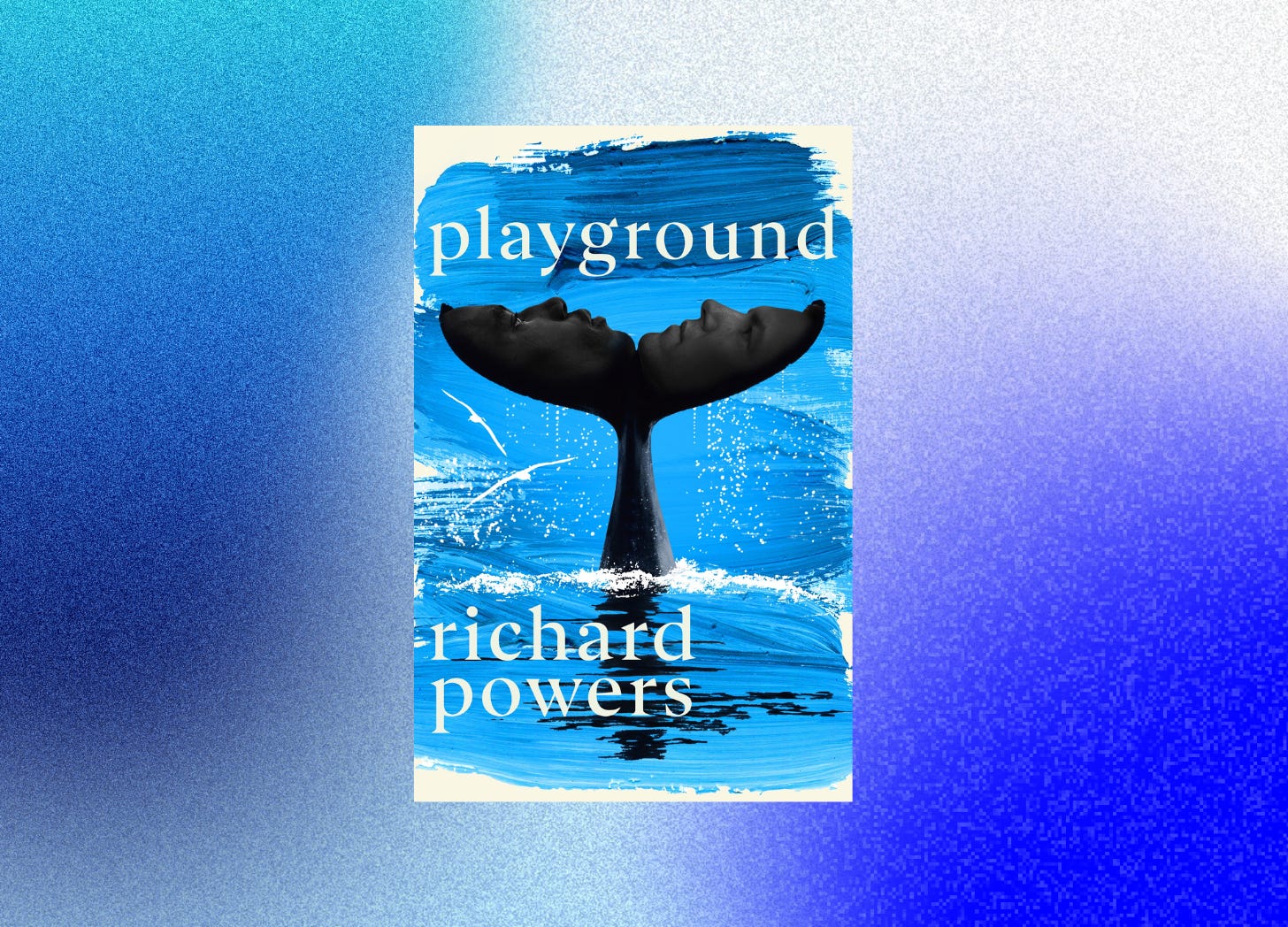Playground book review: not my usual read, but maybe that's the point
Warm as the ocean, vast as the sea.
“How much has it warmed the oceans, to give you birth? How many species have died so that you can live? What will it mean, to have in our midst a thing that will give us whatever we ask for?”
— Richard Powers, Playground
Playground is a behemoth of a story told in fragmented, short chapters that follow the lives of seemingly unrelated characters who are eventually linked in strange and delightful ways:
First we meet Rafi and Todd, high school best friends from opposite social classes who feel a spark while playing strategy games together. Every move, counter-move, strike and defence is like a dance between two people who know each other impossibly well and also not at all. But it’s due to this conflicting intimacy (and its clash with a tectonic divergence in values and ethics) that they become estranged. Girl/friend Ina, who feels like an imposter in her own brown skin as Polynesian diaspora, is unwittingly, unwillingly, caught in the middle.
Elsewhere, there is Evie, who feels more alive under the sea than she has ever felt on land, and who will dedicate her life to unravelling the mysteries of the ocean no matter what (or who) it will cost her. Her experiences underwater are the highlight of Playground — the description of the sea and its inhabitants are vivid and striking, and the promise of this is what drew me to this novel in the first place. Though, her findings of plastic in the deepest trenches of the ocean will leave you feeling ill.
And finally, there are the few dozen inhabitants of Makatea in French Polynesia, who have found themselves at the centre of a confusing rat race after they are threatened (or saved, depending on perspective) with offers from billionaire tech companies who want to use their sleepy island as a launchpad to colonise the ocean. A referendum must take place to decide which future they will choose: preservation or progress? But first, they must learn everything they can about this venture that could change everything — and they do so with the seemingly all-knowing AI assistant Profunda.
Playground covers a lot of ground as it navigates the issues underpinning humanity today. It explores the pros and cons of AI as a powerful tool that could change lives, but at a cost. It wrangles with the ethical dilemmas colonised people face when trying to simultaneously preserve their home, while also building a future (this in particular was a conversation I was not expecting, and I found it to be surprisingly confronting — achey, but in a good way). It shows us how beautiful the ocean is, with an implicit suggestion that perhaps it is beyond saving. And throughout all this, there are themes of play weaved into every character, every storyline, every moment: play in the gamified ways we interact with the world, play in the dance of dolphins and the ding of a smartphone, and play in the ways we communicate with one another — which in and of themselves are a form of play.
If this seems like incredibly dense and varied subject matter, it’s because it is. But Playground’s vast scope, ambitious as it is, doesn’t actually feel like it’s casting too wide a net — which is a feat given the story’s jumps between time, space and character POV. Although, a minor gripe: I found that I struggled to actually finish this novel, despite the fact that I was enjoying it, which to me means it could have benefited from being a smidge shorter. Flitting through so many perspectives over so many decades does become a little tedious after a while.
Perhaps the part of this novel I enjoyed the most, though, was its tone. Playground manages to remain introspective, compassionate and playful as it navigates issues that are typically controversial and upsetting. It is neither doomist nor optimistic, preachy or apolitical. It respects that most people are a product of their environment, and so are their dreams and aspirations — there’s equal amounts of empathy for both the maligned Black prodigy as there is for the white Elon Musk prototype. Normally, that would be a turn-off for me, but I really found it to be quite profound here.
Life is the ultimate game, or playground, as Powers puts it — we might reach different levels and have different stats, but whether you want to play for strategy or play for enjoyment is up to you.




